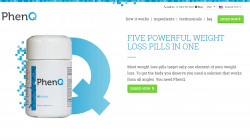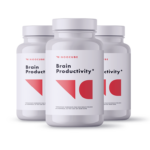In the bustling world of dietary supplements, one compound that consistently captures the attention of health enthusiasts and researchers alike is Choline. This essential nutrient, often overshadowed by more widely discussed supplements, plays a crucial role in various bodily functions, including brain health, liver function, and muscle movement. As awareness about the importance of Choline continues to grow, more individuals are seeking reliable information about its benefits, sources, and the optimal ways to incorporate it into their diet.
In this comprehensive review, we dive deep into the world of Choline, exploring its multifaceted benefits, dietary sources, and the science behind its impact on the human body. Whether you’re a fitness aficionado, a health-conscious individual, or someone navigating the complexities of dietary supplements, this article aims to provide you with a thorough understanding of Choline, its significance, and how it can enhance your overall health and wellness. Stay tuned as we unravel the mysteries of Choline, the vital nutrient that deserves a spot in your dietary supplement regimen.
Ingredients of Choline
Here’s a list of choline ingredients along with information about each:
- Beef Liver: Pan fried, 3 ounces – 356 mg (65% DV)
- Egg: Hard boiled, 1 large – 147 mg (27% DV)
- Beef Top Round: Separable lean only, braised, 3 ounces – 117 mg (21% DV)
- Soybeans: Roasted, ½ cup – 107 mg (19% DV)
- Chicken Breast: Roasted, 3 ounces – 72 mg (13% DV)
- Beef: Ground, 93% lean meat, broiled, 3 ounces – 72 mg (13% DV)
- Fish: Cod, Atlantic, cooked, dry heat, 3 ounces – 71 mg (13% DV)
- Potatoes: Red, baked, flesh and skin, 1 large potato – 57 mg (10% DV)
- Wheat Germ: Toasted, 1 ounce – 51 mg (9% DV)
- Beans: Kidney, canned, ½ cup – 45 mg (8% DV)
- Quinoa: Cooked, 1 cup – 43 mg (8% DV)
- Milk: 1% fat, 1 cup – 43 mg (8% DV)
- Yogurt: Vanilla, nonfat, 1 cup – 38 mg (7% DV)
- Brussels Sprouts: Boiled, ½ cup – 32 mg (6% DV)
- Broccoli: Chopped, boiled, drained, ½ cup – 31 mg (6% DV)
- Mushrooms: Shiitake, cooked, ½ cup pieces – 27 mg (5% DV)
- Cottage Cheese: Nonfat, 1 cup – 26 mg (5% DV)
- Fish: Tuna, white, canned in water, drained, 3 ounces – 25 mg (5% DV)
- Peanuts: Dry roasted, ¼ cup – 24 mg (4% DV)
- Cauliflower: 1″ pieces, boiled, drained, ½ cup – 24 mg (4% DV)
- Peas: Green, boiled, ½ cup – 24 mg (4% DV)
- Sunflower Seeds: Oil roasted, ¼ cup – 19 mg (3% DV)
- Rice: Brown, long grain, cooked, 1 cup – 19 mg (3% DV)
- Bread: Pita, whole wheat, 1 large (6½ inch diameter) – 17 mg (3% DV)
- Cabbage: Boiled, ½ cup – 15 mg (3% DV)
- Tangerine (Mandarin Orange): Sections, ½ cup – 10 mg (2% DV)
- Beans: Snap, raw, ½ cup – 8 mg (1% DV)
- Kiwi Fruit: Raw, ½ cup sliced – 7 mg (1% DV)
- Carrots: Raw, chopped, ½ cup – 6 mg (1% DV)
- Apples: Raw, with skin, quartered or chopped, ½ cup – 2 mg (0% DV)
The Daily Value (DV) for choline is 550 mg for adults and children age 4 years and older. Foods providing 20% or more of the DV are considered to be high sources of a nutrient, but foods providing lower percentages of the DV also contribute to a healthful diet.
Potential Side Effects of Choline
Here’s a list of potential side effects of Choline based on the information gathered:
- Diarrhea: Excessive choline intake can lead to gastrointestinal issues such as diarrhea.
- Nausea: Overconsumption may also cause nausea.
- Fatigue: High amounts of choline can lead to feelings of fatigue.
- High Blood Pressure: In some cases, too much choline can contribute to elevated blood pressure levels.
- Excessive Perspiration: Overconsumption might lead to increased sweating.
- Fishy Odor of the Skin: A well-known side effect of excessive choline intake is a fishy body odor.
It’s important to note that while choline is essential for many bodily functions, including brain health and liver function, moderation is key. Overconsumption can lead to the side effects mentioned above. People with existing gastrointestinal issues, pregnant women, and those with liver or kidney disease should be particularly cautious. Always consult with a healthcare professional before starting any new supplement regimen.
What people are saying about Choline
Choline is a vital nutrient that supports various bodily functions, including liver health, brain development, and muscle movement. Despite its importance, many people do not consume enough choline, leading to potential health risks. Choline supplements can help ensure adequate intake, especially for specific groups such as pregnant individuals, vegetarians, and people with certain genetic conditions. During pregnancy, sufficient choline intake is crucial for fetal brain development and may prevent birth defects. However, excessive choline intake can lead to side effects such as a fishy body odor, vomiting, and more severe health issues like liver damage and increased risk of heart disease.
The recommended daily intake of choline varies by age, gender, and life stage, with adults requiring between 425 mg and 550 mg. Pregnant and breastfeeding women need higher amounts, 450 mg and 550 mg respectively, to support fetal and infant development.
Despite the capability of the human body to synthesize some choline, dietary intake is necessary to meet the body’s needs. Foods rich in choline include liver, eggs, meat, and certain fish and legumes. However, it’s noteworthy that most multivitamins do not contain choline, and dietary sources alone may not suffice for everyone.
Recent research highlights the potential link between choline levels and Alzheimer’s disease progression. Lower blood choline levels have been associated with higher neuropathology in Alzheimer’s patients, suggesting that choline plays a role in cognitive function and the progression of neurodegenerative diseases. This underscores the importance of adequate dietary choline intake for brain health.
Furthermore, choline intake is particularly concerning for vegetarians and vegans, who might find it challenging to meet the recommended levels due to the predominant sources of choline being animal-based. Some studies indicate that vegetarians and vegans have significantly lower choline intakes compared to omnivores, which could potentially impact health outcomes related to choline deficiency.
In summary, choline is an essential nutrient with significant roles in liver function, brain development, and overall health. Adequate intake is necessary for all individuals, especially pregnant women, to support fetal development. However, overconsumption can lead to adverse effects, highlighting the importance of balancing choline intake through diet and supplementation when necessary.
About the company behind Choline
The company behind Choline, Nested Naturals, focuses on providing a Choline supplement that supports cognitive functions for both genders and all ages. Their product, which is vegan and non-GMO, aims at enhancing brain development in infants, supporting central nervous system functions, and improving cognitive abilities in adults. Nested Naturals prides itself on sourcing high-quality natural ingredients and ensures their product undergoes extensive third-party testing for quality assurance. Their Choline supplement is presented in the form of L + Choline Bitartrate capsules, tailored to benefit the entire family by maintaining optimal brain health and cognitive functions.
A look at Choline’s BBB profile
I couldn’t find any information
Where to buy and price of Choline
Choline supplements are available for purchase from a variety of online retailers and health stores. For example, Nature Made offers choline supplements that support brain and nervous system health, though the site doesn’t list specific prices or product details without further navigation. Another option is from Nested Naturals, which offers a 500mg Choline supplement that is vegan, non-GMO, and soy-free for $21.95 USD. This supplement is designed to support memory, focus, mental clarity, cardiovascular health, and liver health.
What is the refund policy of Choline
I couldn’t find any information
Choline contact information
I couldn’t find any information
Pros and cons of Choline
Choline is an essential nutrient that offers numerous health benefits but also comes with some potential drawbacks when consumed in excess. Here’s a summary of the pros and cons of choline based on the information gathered:
Pros:
- Supports Brain Health: Choline plays a crucial role in brain development, nerve function, and the production of neurotransmitters that are essential for memory and cognitive function.
- Improves Liver Function: It helps in the transport of fat from the liver, thus preventing fat accumulation that could lead to liver damage or fatty liver disease.
- Essential for Pregnancy: Choline is vital for fetal brain development and can prevent birth defects. Pregnant women are encouraged to ensure adequate choline intake.
- Aids in DNA Synthesis: It is involved in processes that form DNA, which is necessary for the structural building of the body.
- Enhances Athletic Performance: Choline may improve physical performance by boosting energy levels, focus, and muscle function.
- Heart Health: It assists in converting homocysteine to methionine, reducing the risk of heart disease.
Cons:
- Risk of Cardiovascular Disease: High intake of choline-rich foods can raise the level of TMAO, a metabolite associated with an increased risk of stroke and heart attack, particularly in individuals with preexisting conditions like diabetes or kidney disease.
- Potential Cancer Links: Observational studies have shown mixed results regarding choline and cancer risk. Some studies suggest a higher intake might be associated with lower rates of breast cancer, while others indicate an increased risk of prostate cancer with high choline intake.
- Side Effects of Excess Intake: Overconsumption of choline can lead to side effects like a fishy body odor, vomiting, excessive sweating, low blood pressure, liver damage, and increased risk of heart disease.
Is Choline worth a try?
Choline, recognized for its broad spectrum of health benefits, particularly in cognitive function and liver health, appears to be worth considering for supplementation, especially for individuals seeking cognitive enhancement or managing dietary deficiencies. CDP Choline, a form of choline, has been reported to boost mood, alleviate brain fog, and enhance cognitive functions such as memory and focus. It interacts with catecholamine neurotransmitters, including adrenaline, norepinephrine, and dopamine, offering neuroprotective effects and potentially aiding in conditions like Parkinson’s disease. Suitable daily doses range from 250–1000 mg, with clinical trials indicating no serious side effects even at high doses. Some users, however, have reported mild side effects such as indigestion and insomnia at higher doses.
Choline is naturally present in various foods, with meat, fish, poultry, dairy, eggs, and certain vegetables being rich sources. Its deficiency is rare, as the body can synthesize choline to some extent, but certain groups, such as pregnant women and individuals on long-term intravenous nutrition, may be at higher risk. Despite its benefits, excessive intake can lead to symptoms like low blood pressure and liver toxicity, with the tolerable upper intake level set at 3,500 mg daily for adults.
Given its role in supporting essential body functions and the potential cognitive benefits, incorporating choline into your diet or as a supplement, particularly for those with specific health goals or dietary restrictions, seems beneficial. Nonetheless, it’s crucial to approach supplementation with awareness of both the potential benefits and the risks associated with high intakes.
Choline FAQ
- What is Choline?
Choline is a vital nutrient necessary for brain and nervous system functions, including memory, mood, muscle control, and other processes. It also plays a role in forming the membranes surrounding cells. - How much Choline do I need?
The required amount of choline varies with age, sex, and life stage. For example, adult men need 550 mg/day, while adult women need 425 mg/day. Pregnant and breastfeeding women require 450 mg and 550 mg/day, respectively. - What are the sources of Choline?
Choline can be found in meat, eggs, poultry, fish, dairy products, potatoes, cruciferous vegetables (like brussels sprouts, broccoli, and cauliflower), some beans, nuts, seeds, and whole grains. - Am I getting enough Choline?
Most people in the United States consume less than the recommended amounts of choline. Groups more likely to have difficulty getting enough choline include pregnant women, individuals with certain genetic conditions, and those on intravenous feeding. - What happens if I don’t get enough Choline?
While deficiency is rare due to the body’s ability to synthesize choline, low levels can lead to muscle and liver damage and nonalcoholic fatty liver disease (NAFLD). - Can Choline be harmful?
Excessive choline intake can cause symptoms like fishy body odor, vomiting, heavy sweating, salivation, low blood pressure, and liver damage. High amounts may also increase the risk of heart disease. - What are the effects of Choline on health?
Choline intake has been linked to cardiovascular health, with some research suggesting it may help maintain heart and blood vessel health, though high amounts might increase disease risk. Its impact on neurological disorders is under investigation, with mixed results on its effect on cognitive function. Adequate choline intake is necessary for proper liver function and may help prevent NAFLD.
![Choline Review [year] - Side Effects & Ingredients](https://www.miriamwellness.com/wp-content/uploads/2023/11/Choline-Review-2023-Side-Effects-Ingredients-700x368.jpg)




